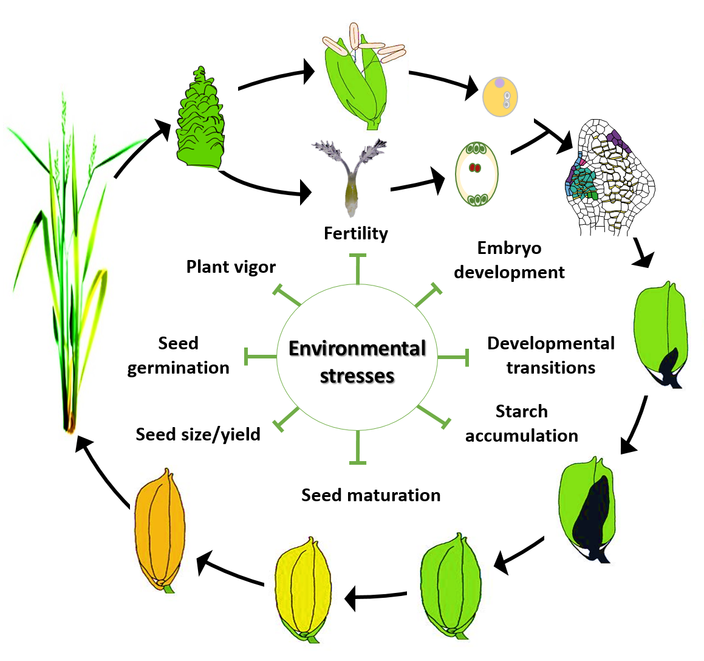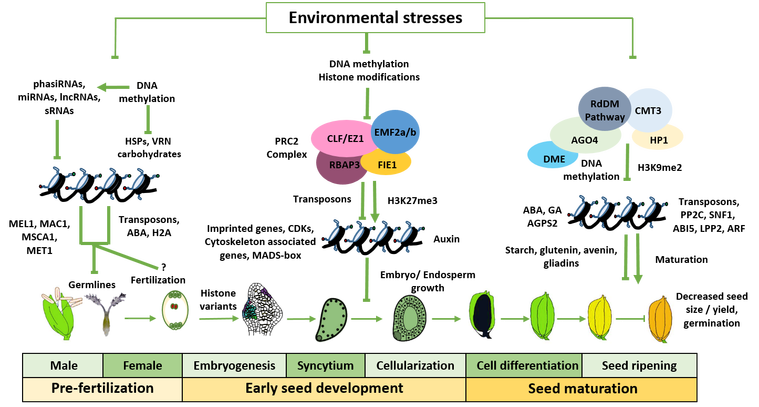Research

Our goal is to understand plant reproductive developmental responses to environmental stresses in order to elucidate the mechanisms behind these responses and to use them to improve resilience of crops to detrimental conditions.
Plants in their natural environment are recurrently exposed to stresses of different origins. Due to increasing CO2 emissions, mainly caused by anthropogenic activities, global climatic changes are especially associated with increasing temperatures. Stress caused by high temperatures accelerates developmental phases thereby reducing the photosynthesis and biosynthesis phase. Moreover, processes associated with carbon assimilation including transpiration and respiration have drastic consequences for plant growth and development. Most environmental stresses affect normal plant development and thus limit crop productivity, which result in yield losses. Reproductive development has been shown to be especially sensitive to adverse environmental conditions. In most cereals, climatic perturbations during reproductive development results in pollen sterility, embryo and seed abortion, and consequently yield losses and decrease in grain quality. Detailed molecular, biochemical and genomics studies have defined many of the molecular underpinnings of reproductive development including several epigenetic factors that control proper reproductive development. Some of these genes encode transcription factors that are required for normal reproductive development and regulate yield in different plant species. Our research is motivated on understanding several components during plant development:
Male gametophyte Development

Increased temperature events caused by global warming are becoming more frequent in recent time. Shifts in the duration and intensity of the temperate seasons have a detrimental effect on plant development, and even more drastically on their reproduction. Male gametogenesis is considered to be most susceptible developmental stage to environmental stresses. Upon stress exposure, male reproductive organs often show morphological and structural alterations that typically lead to meiotic defects or premature spore abortion and, consequently, to male sterility. We are interested to elucidate molecular and physiological mechanisms underlying stress sensitivity contributing to male sterility.
Molecular mechanisms of stress tolerance

Environmental stresses are major concerns in modern agriculture. Recurrent stress events are main limitations for crop productivity resulting in significant yield losses annually. With extreme events occurring with increased frequency, and in many cases with greater intensity, there is a critical need for developing crops that are more adapted to variable climates and conditions. Plants display a variety of molecular, physiological and biochemical responses to survive under stressful conditions. Our long-term goal is to elucidate novel signaling mechanisms used by plants to survive under environmental perturbations and use them for improving plant performance.
Developmental transitions

